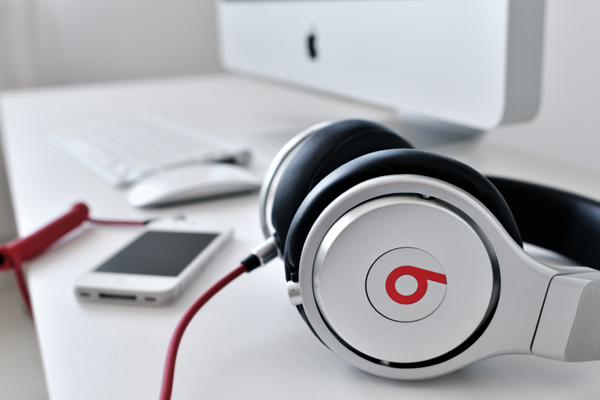3Qs: Music in the digital age


The evolution of technology has changed the way we listen to our favorite songs and interact with music. Apple, for example, recently announced plans to launch a custom-radio service. Pop star Justin Bieber got discovered through YouTube and became one of the top-selling artists of all time. And his tweet trumpeting Carly Rae Jepsen’s “Call Me Maybe” turned a small-time Canadian artist into an international sensation. We asked Patrik Wikström, a newly appointed associate professor of music in the College of Arts, Media and Design, to weigh in on the changing face of music in today’s digital age.
Does the chance to listen to music whenever or wherever we want through new technologies and handheld devices devalue the musical experience or does it align with our needs for instant gratification?
Online services that allow people access to music everywhere, anytime is quickly transforming the music industry and the way we relate to music. The fact that recorded music is more accessible now than ever before, however, does not necessarily diminish the value of the music experience. From the record labels’ point of view, the value of the recorded music business has certainly diminished, but from music listeners’ point of view, it is the opposite. Legal subscription services such as Pandora and Spotify make it possible for music listeners to experience sounds and genres they hardly would have encountered in the 20th-century music economy. Their music experience is more diverse and more omnipresent than ever. Music permeates every aspect of our daily lives, and even though revenues from recorded music may have diminished, the elevated role of music in contemporary society indirectly increases revenues from other music industry sectors, such as live performances and music licensing.
Research shows that music consumers of today do not spend less money on music compared to a decade ago — they simply spend that money differently. All in all, the last decade has certainly transformed the basis of the music industry, but the value of music remains strong, both from a business and from a cultural perspective.
The digital age has transformed music into a social experience, convincing music lovers to flock to YouTube, Twitter and Facebook to hear the song of the moment. How have social-media platforms changed the way we listen to music?
Music listening and discovery have always been social activities, but social media amplifies these aspects. Social media strengthens the relationship within a group of fans as well as between the artist and their fans. Artists no longer merely compose and/or perform songs to an audience, they create a platform that allows their fans to meet and chat about the issues they consider to be relevant. Artists that are able to cultivate a tight and loyal fanbase via social media may be able to create a sustainable business based on their craft without being part of the mainstream music industry and without signing a record label contract. It is far more valuable to have a small but loyal fanbase that is willing to support the artist it appreciates than a large and anonymous fanbase that does not care very much about who has created the music it enjoys. One often-mentioned success story of such an artist-fan relationship is Boston-based Amanda Palmer who was able to raise close to $1.2 million to her music/art project from 24,800 fans via the social-media fundraising service Kickstarter.
It should also be noted that social media introduces a new level of uncertainty into the music business. It has always been difficult to predict and control which songs or artists will be successful or not, but social media increases that level of uncertainty and risk. Music listeners increasingly rely on their social network connections to discover new music and pay less attention to advice from radio station DJs and record store clerks. The success of a song increasingly follows the same logics as other chaotic network phenomena and becomes more or less impossible to govern.
Get creative: The year is 2020. How will you be buying or downloading your music?
In 2020 there will probably still be a range of different models and services for acquiring and storing recorded music, and some music listeners will perhaps even continue buying their recorded music on CDs or vinyl. Live music performances and music licensing will most likely constitute an even larger share of the global music economy than today, and the recorded music business will more or less completely have moved online. One of the most promising online models for recorded music right now is the subscription model where you pay a monthly fee and get access to a large music portfolio. These services have been around for a while, but still many people feel uncomfortable having but not “owning” their favorite music.
But in 2020, I believe most Americans will have grown accustomed to this way of acquiring and listening to music, where access is far more important than ownership. There are still several details to figure out about these models, primarily related to how the revenues should be shared between different rights holders. I would nevertheless be very surprised if these challenges are not overcome by 2020 and that most of us by then have thrown out the old plastic record collection and instead listen to music via some kind of music subscription service.





